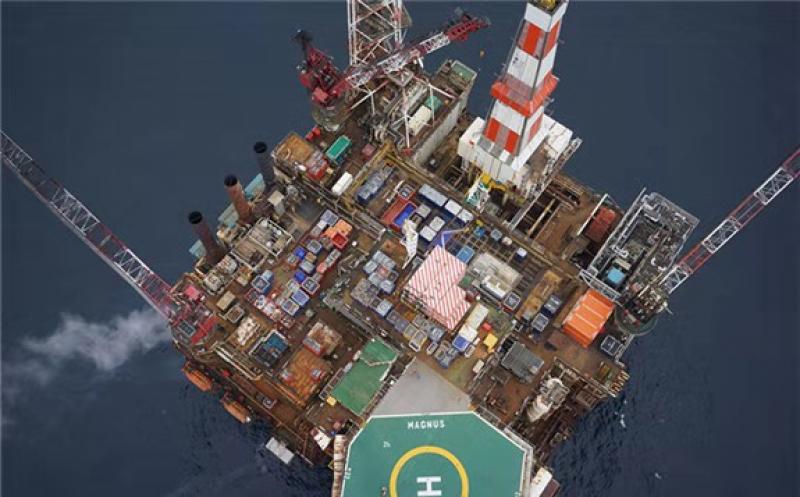Scotland’s First Minister Nicola Sturgeon called on the UK government to reconsider oil and gas licenses, just days after a United Nations panel warned of dire consequences for the planet without drastic steps to slash emissions.

Writing to British Prime Minister Boris Johnson, Sturgeon said: “We are both well aware of the importance of oil and gas over many decades -- not least in terms of jobs -- to the Scottish and UK economies.” However, “the answer to these challenges -- given the urgency of the climate emergency -- cannot be business as usual.”
The letter reflects the mounting pressure on Sturgeon to take a lead on climate ahead of key UN talks in Glasgow later this year. She’s also keen to burnish her green credentials as negotiations continue over a potential cooperation deal in the Scottish parliament with the pro-independence Scottish Greens.
Sturgeon asked the UK government to reassess oil and gas fields that have been licensed but not yet developed, such as the Cambo development west of Scotland’s Shetland Islands. A final investment decision for the field -- owned by Siccar Point Energy Ltd. and Royal Dutch Shell Plc -- is due later this year, having been postponed in 2020 as the Covid-19 crisis sent oil prices crashing.
The government didn’t immediately respond to a request for comment. Johnson’s spokesman, Max Blain, told reporters on Monday that the decision on developing Cambo was “based on an existing license rather than granting a license now, but it is obviously going to be part of the energy mix in the short term while we transition further to renewables.”
The Scottish Greens, who Sturgeon has said could get ministerial posts as part of a cooperation agreement, repeated their demand that the Cambo license be revoked and all new oil and gas permits banned.
Shell declined to comment. Chief Executive Officer Ben van Beurden said last month when asked about Cambo: “I hear all the calls for stopping exploration, stopping production. Let me be very clear, as long as the UK still needs oil and gas in its consumption for its society, it’s better to produce it in its own backyard.”
Siccar Point didn’t immediately respond to a request for comment.
Earlier this year, the UK government set out a path to transform the North Sea into a basin that produces hydrogen and renewable energy, and stores CO2 from carbon-capture projects. While it fell short of banning new exploration licenses, UK Energy Minister Anne-Marie Trevelyan didn’t rule out doing so in the future, a move already made by Denmark on the other side of the North Sea.
The Cambo field is among the UK’s biggest potential oil and gas projects, though it’s a relative minnow globally. The first phase of development would target 170 million barrels of oil equivalent, enough to satisfy global consumption for less than two days.